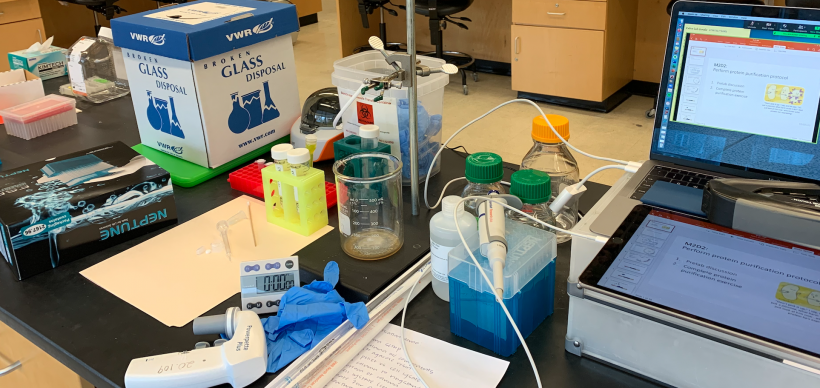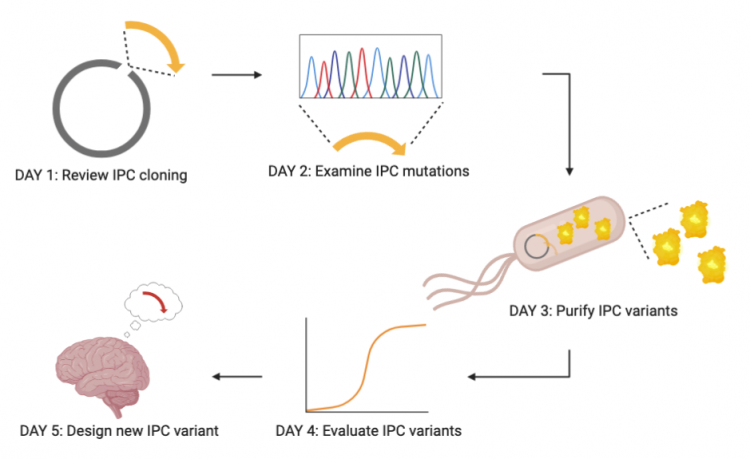Difference between revisions of "20.109(S21):Module 3"
Noreen Lyell (Talk | contribs) (→Overview) |
Noreen Lyell (Talk | contribs) (→Overview) |
||
| Line 12: | Line 12: | ||
| + | The process of scientific inquiry encompasses much more than the collection and interpretation of data. A key part of the process is design – specifically of experiments that address a hypothesis and of new materials or technologies. Moreover, any design is subject to continued revision. You might redesign an experiment or tool based on your own research, or you might consult the vast body of scientific literature for other perspectives. As the old graduate student saying (sarcastically) goes, “A month in the lab might save you a day in the library!” In other words, although the process of combining the literature can be arduous or even tedious at times, it beats wasting a month of your time repeating experiments previously demonstrated not to work or reinventing the wheel. | ||
| + | |||
| + | During this module, you will generate and test a new version of inverse pericam (IPC). | ||
Revision as of 21:30, 2 February 2021
Contents
Module 3
Lecturer: Prof. Alan Jasanoff
Instructors: Dr. Noreen Lyell, Dr. Leslie McClain, and Dr. Becky Meyer
TAs: Jeff Hsaio and Malek Kabani
Overview
The process of scientific inquiry encompasses much more than the collection and interpretation of data. A key part of the process is design – specifically of experiments that address a hypothesis and of new materials or technologies. Moreover, any design is subject to continued revision. You might redesign an experiment or tool based on your own research, or you might consult the vast body of scientific literature for other perspectives. As the old graduate student saying (sarcastically) goes, “A month in the lab might save you a day in the library!” In other words, although the process of combining the literature can be arduous or even tedious at times, it beats wasting a month of your time repeating experiments previously demonstrated not to work or reinventing the wheel.
During this module, you will generate and test a new version of inverse pericam (IPC).
Research goal: Perform site-directed mutagenesis to alter the properties of a protein-based fluorescent sensor
Lab links: day by day
M3D1: Review inverse pericam (IPC) cloning strategy
M3D2: Examine IPC mutations
M3D3: Induce and purify IPC variants
M3D4: Evaluate effect of mutations on IPC variants
M3D5: Design new IPC variant
Assignments
Research proposal presentation
Mini-report

